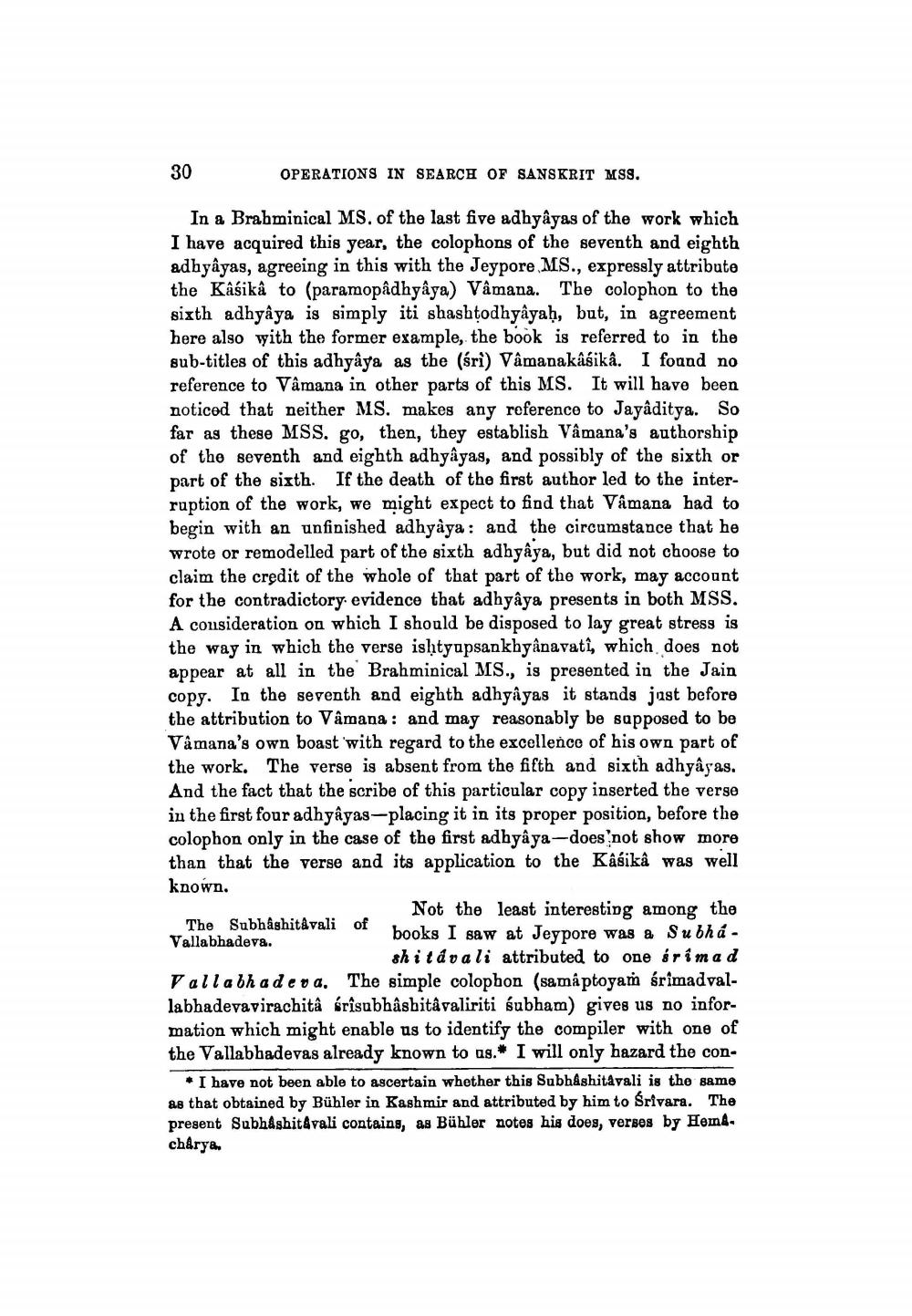________________
30
OPERATIONS IN SEARCH OF SANSKRIT MSS.
In a Brahminical MS. of the last five adhyâyas of the work which I have acquired this year, the colophons of the seventh and eighth adhyayas, agreeing in this with the Jeypore MS., expressly attribute the Kâśikâ to (paramopâdhyâya) Vâmana. The colophon to the sixth adhyaya is simply iti shashṭodhyâyaḥ, but, in agreement here also with the former example, the book is referred to in the sub-titles of this adhyaya as the (śri) Vâmanakâśikâ. I found no reference to Vâmana in other parts of this MS. It will have been noticed that neither MS. makes any reference to Jayâditya. So far as these MSS. go, then, they establish Vâmana's authorship of the seventh and eighth adhyâyas, and possibly of the sixth or part of the sixth. If the death of the first author led to the interruption of the work, we might expect to find that Vâmana had to begin with an unfinished adhyaya: and the circumstance that he wrote or remodelled part of the sixth adhyaya, but did not choose to claim the credit of the whole of that part of the work, may account for the contradictory evidence that adhyaya presents in both MSS. A consideration on which I should be disposed to lay great stress is the way in which the verse ishtyupsankhyânavatî, which does not appear at all in the Brahminical MS., is presented in the Jain copy. In the seventh and eighth adhyayas it stands just before the attribution to Vâmana: and may reasonably be supposed to be Vâmana's own boast with regard to the excellence of his own part of the work. The verse is absent from the fifth and sixth adhyayas. And the fact that the scribe of this particular copy inserted the verse in the first four adhyâyas-placing it in its proper position, before the colophon only in the case of the first adhyâya-does not show more than that the verse and its application to the Kâsika was well known.
Not the least interesting among the books I saw at Jeypore was a Subháshitávali attributed to one śrimad Vallabhadeva. The simple colophon (samâptoyam śrimadvallabhadevavirachitâ śrîsubhâshitâvaliriti subham) gives us no information which might enable us to identify the compiler with one of the Vallabhadevas already known to us. I will only hazard the con
The Subhashitavali of Vallabhadeva.
I have not been able to ascertain whether this Subhashitavali is the same as that obtained by Bühler in Kashmir and attributed by him to Srivara. The present Subhashitavali contains, as Bühler notes his does, verses by Hemacharya.




